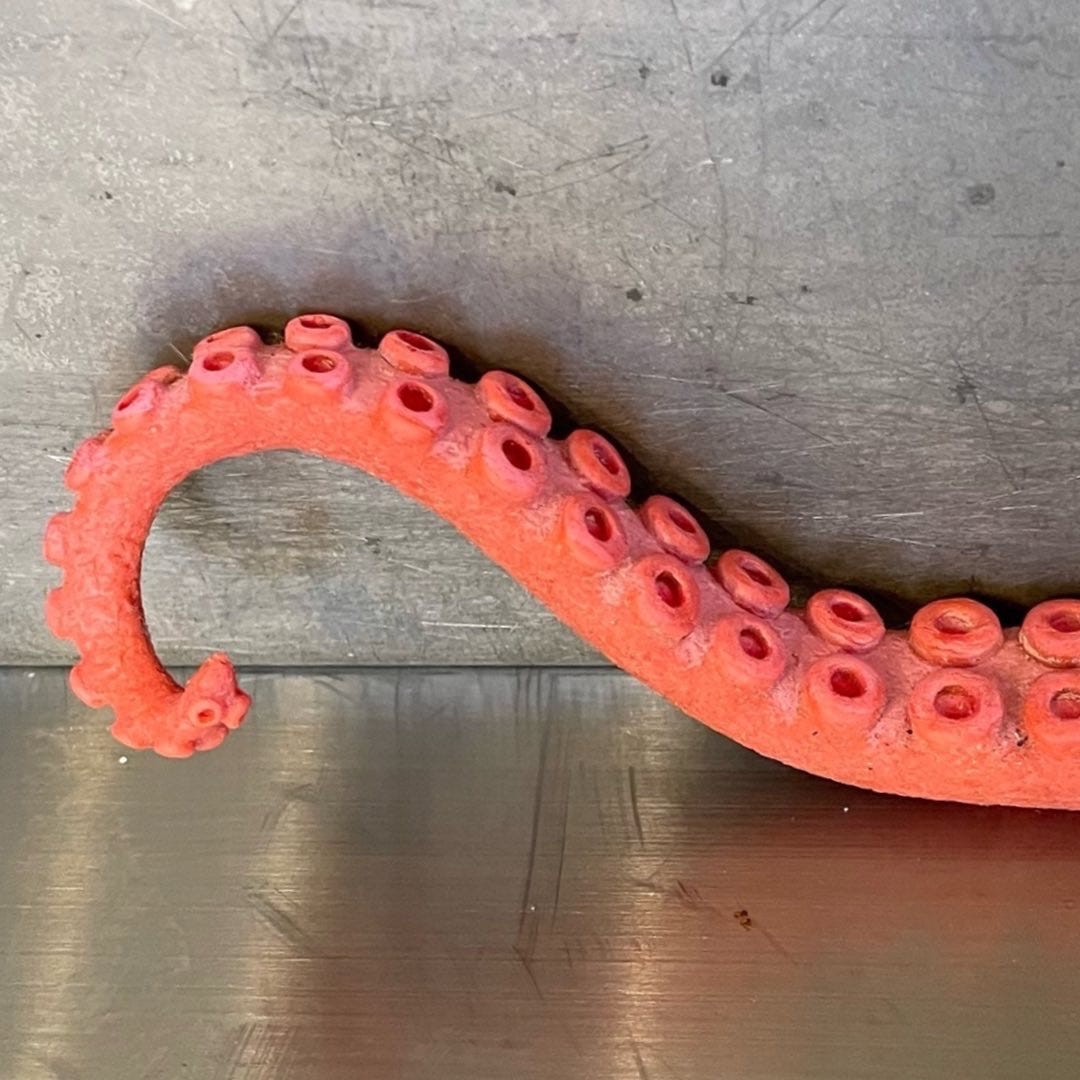THE TENTACLE
“We got pregnant on the first try, and I knew it when, sitting backward-facing on a commuter train, I had the first bout of motion sickness of my life.”
I never got to meet the baby, but I gave her a name. Her name is a secret. I’m not going to tell you.
We got pregnant on the first try, and I knew it when, sitting backward-facing on a commuter train, I had the first bout of motion sickness of my life. We were visiting a friend in New Jersey and riding back to her house from New York City. It happened again on the plane home. The two pink lines on the pee-dipped stick, when they came, were no surprise. The surprise was how sick I continued to be. Sicker than I’ve ever been. Not cute-rom-com-barf sick; more like the worst hangover of my life, but endless. I longed to vomit, to evict whatever had turned my own body against me. But the vomit would not come.
Still, we made the plans you make when everything is fine. We imagined a nursery (ocean-themed, because we were enamored of the image of our child swimming in warm salt water, in me and later in the world). I bought fabric and embroidery floss to make a quilt. I researched best practices, planned to install a ceiling fan, to position a crib against an interior wall. Paint. Linens. Soft things we would keep out of the crib until the child was a year old. I told only a few people. A friend said, “You’ll worry about all the wrong things.” I already was.
Some days I could run a few errands. Some days I couldn’t do anything. Again and again I told my husband, “This can’t be normal. Humans would be extinct.” On a good day, we went to a ritzy toy store, but the only thing we loved there was a finger puppet of a tentacle. Later, one of us put the tentacle on the handle of a wooden spoon, crawling out of our utensil crock, but I don’t remember who, or why.
At ten weeks I had a blood draw for a routine high-tech test designed to isolate the baby’s DNA as it free-floated in my blood and map it for anomalies. Two weeks later, a phone call: inconclusive. I’d have to come back. More vials, more blood, and another call, this time my OB/GYN crying on the line.
In some cases, severe chromosomal anomalies like Trisomy-13 result in a baby siphoning off too much of its mother’s protein in the struggle to develop, to survive. The result feels like a hangover verging on alcohol poisoning. Nothing here was normal. Her heart was three-chambered, like a frog’s. Her brain was crowded out by fluid in her skull. Parts of her that should have been growing inside her abdomen were outside it. There were more tests (ultrasound, amnio), genetic counseling, and then the abortion.
When the baby was gone from my body, the doctor asked, “Can you tell you’re not pregnant anymore?” I could. The hospital offered footprints, memorials, grief counseling. None of it seemed honest or true. She had never really been mine, but belonged instead to some other realm of existence, where anomalous development and incompatibility with life held no sway. The realm of imagination, where I still pictured myself braiding her auburn hair.
I don’t know why the tentacle is still in the utensil crock, but it is. I cannot imagine where else it could ever be.
—Victoria Barrett
Victoria Barrett's short stories have appeared in Colorado Review, Confrontation, The Massachusetts Review, Monkeybicyle and Puerto del Sol. Her essays, humor writing, political articles and criticism have appeared in Gay Magazine, Salon and The Washington Post. She lives and writes in Indianapolis.


